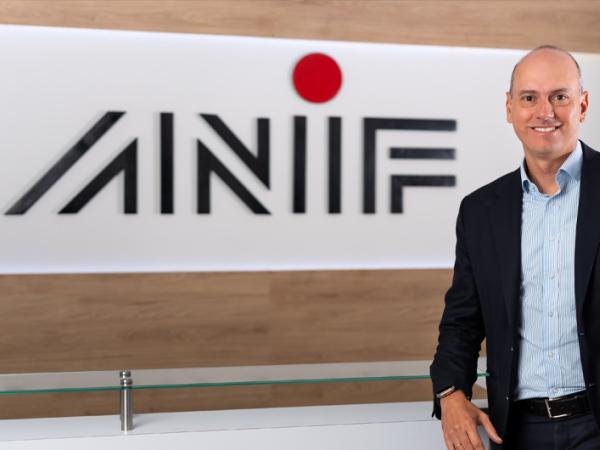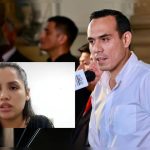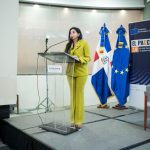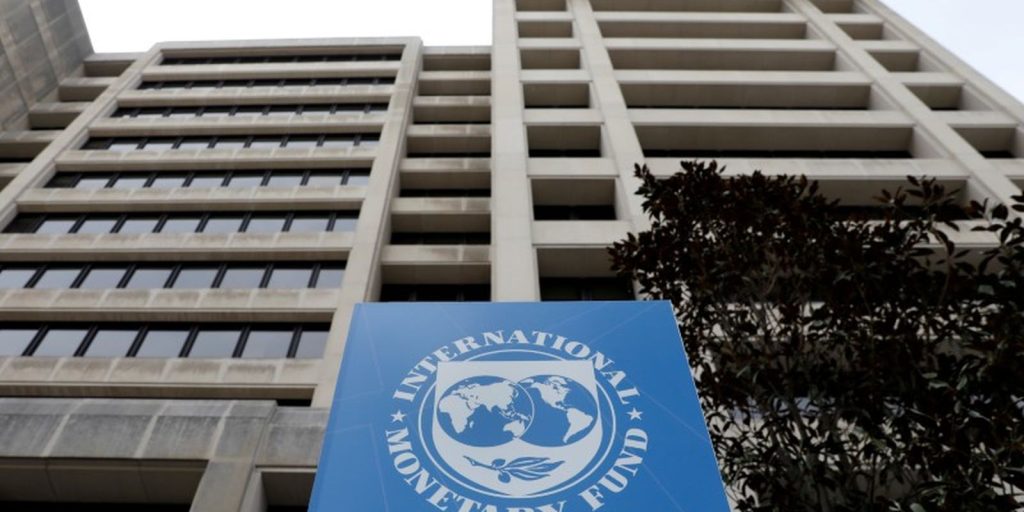This Thursday, October 24, another edition of the General Assembly of Anif will be held, a study center that was born as a financial union and that after several changes and important moments in history, birthday this year half a century closely following the country’s economy.
In dialogue with Portafolio, José Ignacio López, president of Anif, said that looking back it is clear how the debates and analysis of what is happening in economic matters have allowed the country to move forward in critical moments, although he makes it clear that there are still a lot of fabric to cut.
How do they reach 50 years old?
The 50 years are an ideal pretext to remember the history of Anif, which was born in 1974 as a banking union, but early on, after a very powerful beginning, in its first decade it had to overcome the financial crisis of the 80s, where Not only is there a very complicated issue in fiscal matters, but there is also the bankruptcy of several banking and financial entities that force Anif to introspect and ask himself where he is going.
More information: ‘For me, the usury rate should not exist’: Superfinanciero
Since 1984, the decision was made that Anif continues, but no longer as a union, but as a center of thought and today, after 50 years, we arrive with that conviction of being a very relevant team for the country in the 21st century; through research, analysis, participation in the most relevant debates in the country and basically we are getting ready for 50 more years.
What was talked about in the beginning?
When one looks at the first reports from the time of the 70s, in Colombia and in many other countries in the world, they were marked by very high inflation. In fact, it is interesting because, as they say, history does not repeat itself, but it rhymes and now we are back to the topic of inflation.
The first event that Anif did was dedicated to inflation and the context surrounding that situation. Although today the topic is heard again, we are not necessarily in the eternal return, returning to the same thing, because one sees the progress as so important.
José Ignacio López, president of Anif.
THE TIME
What has changed?
One sees those discussions from the 70s about the causes and how to fight inflation, and economic theory still doubted or had great discussions about where inflation came from and how to remedy it. At this moment we can say that a very important path has been taken and we have an understanding that has allowed us to change the institutional framework in many countries around the world and in Colombia.
For example, when today we are discussing the cost of living, we have a much clearer mandate from the monetary authority, which is the Bank of the Republic, which had an independent nature since the Constitution of ’91. The risks are there, but now we know how to get around them better.
A crucial moment…
Let us remember that Anif started with the change of government between Misael Pastrana and Alfonso López, and at that time the growth of the Upac system was being seen and it was seen as one of the country’s great solutions. Then we learned about the benefits, but also the weaknesses of this tool, especially when we had the crisis at the end of the century, because the crisis at the end of the century really had the Upac system at the epicenter.
Also read: Slow pace of the economy could be extended due to uncertainty and fiscal risks
The fact that loans and interest rates, this type of indexation, occurred through the Upac system, led to the fact that at the time, when the Bank of the Republic had to increase interest rates to defend the exchange rate band, Because many homes collapsed, they could not pay for their housing and the financial institutions took charge and the crisis was generated. That was a moment where there was a great national debate.
How is the local economy currently?
The balance is largely favorable and positive, because really when one looks back, the country’s progress in many dimensions has been enormous. In fact, in these 50 years the income of an average Colombian has almost tripled in constant pesos. That is to say, here there has really been a very significant increase in the income of all Colombians, and that is accompanied by well-being indicators.

Economic growth
iStock
However, there are some tasks that remain pending, and perhaps Anif’s role is to continue pushing the debates so that those missing points are carried out. It is clear that it is a country that continues to be very unequal, that unfortunately in these 50 years has not managed to insert itself into the global economy and there we could focus on the future.
This is an economy that went from being a coffee economy to being an economy that is not necessarily an oil economy, but that does depend heavily on oil exports. So, there is still an enormous challenge of how Colombia can integrate more clearly into international dynamics.
Other news: How is Colombia doing in broadband coverage?
And in the regions?
This discussion of centralization and decentralization of the country is a huge gap, since there have been enormous efforts, but it is still a country where centralism weighs a lot, and I believe that we must review that. Just as it happens with inequality, because we continue to be a nation where there is a periphery that unfortunately remains relatively isolated.
Colombia has traditionally been an expensive country in terms of logistics, with relatively volatile rules of the game, a country that has not been able to insert itself into the global value chain, but if one makes an enormous effort to leverage those resources it has in the hydrocarbons, by perfecting its operation, can grow and fix this, but it must invest more in globalization.

Colombian pesos
iStock
What will be our next bonanza?
Colombia has a virtue and that is that it has enormous potential for the production of renewable energy, because we have good exposure in some regions like La Guajira to the sun, we have wind, we have water. I believe that we also have biodiversity, which is being celebrated this week with COP16. Based on that, we must seek mechanisms to protect this biodiversity and leverage the production of clean energy, with a view to entering the global economy.
I think we have to start from there to generate a new promise of value, with the offer of a clean production matrix. That could be Colombia’s calling card and comparative advantage over other countries.
















